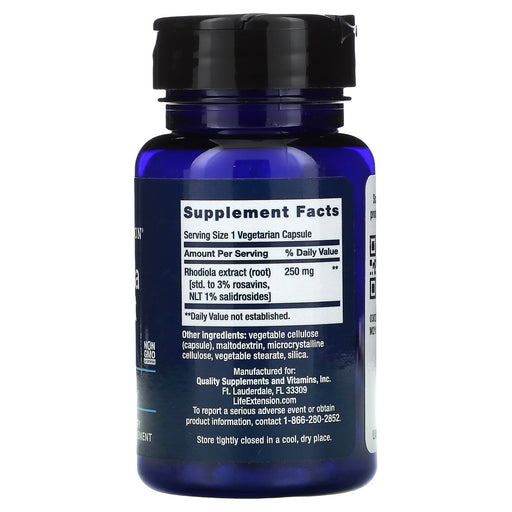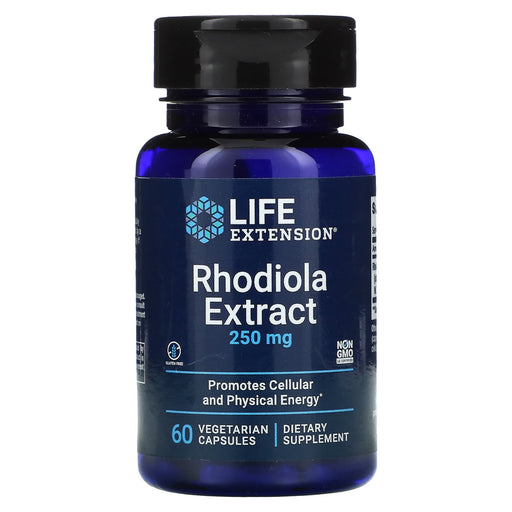
Elevate Your Resilience and Vitality with Rhodiola Supplements
Rhodiola, also known as Rhodiola rosea or Arctic root, is a potent adaptogenic herb that has been used for centuries in traditional medicine to enhance physical and mental performance, improve stress resilience, and promote overall well-being. By incorporating rhodiola supplements into your wellness routine, you can tap into the remarkable benefits of this herb to optimize your vitality, cognitive function, and stress response.
What is Rhodiola?
Rhodiola is a perennial flowering plant that grows in the cold, mountainous regions of Europe and Asia. The root of the plant has been used in traditional medicine systems, such as those of Russia and Scandinavia, as a natural remedy for fatigue, anxiety, and cognitive impairment.
The adaptogenic properties of rhodiola are attributed to its unique blend of bioactive compounds, including:
- Rosavins: A group of phenylpropanoid glycosides, including rosavin, rosin, and rosarin, which are believed to be responsible for the herb's stress-protective and mood-enhancing effects.
- Salidroside: A phenylpropanoid glycoside that has been shown to exhibit potent antioxidant, neuroprotective, and immune-modulating properties.
- Tyrosol: A phenolic compound with antioxidant and anti-inflammatory effects.
Together, these compounds work synergistically to help the body adapt to physical and mental stressors, promote cognitive function, and support overall health and well-being.
Benefits of Rhodiola Supplementation
Incorporating rhodiola supplements into your health regimen may offer several potential benefits, including:
- Stress Resilience: As an adaptogen, rhodiola helps the body adapt to stress by modulating the hypothalamic-pituitary-adrenal (HPA) axis and balancing the production of stress hormones like cortisol. This can help reduce the negative effects of chronic stress on physical and mental health.
- Cognitive Function: Rhodiola has been shown to support cognitive performance, including attention, memory, and mental clarity, particularly during periods of stress or fatigue. The herb's neuroprotective properties may also help support long-term brain health.
- Physical Performance: Some studies suggest that rhodiola may help improve physical endurance, reduce fatigue, and accelerate recovery after exercise, making it a valuable supplement for athletes and fitness enthusiasts.
- Mood Support: Rhodiola has been traditionally used to promote a positive mood and emotional well-being. Its mood-enhancing effects may be due to its ability to modulate neurotransmitters like serotonin and dopamine.
- Antioxidant Protection: The bioactive compounds in rhodiola, particularly salidroside and tyrosol, exhibit potent antioxidant properties, helping to protect cells from oxidative stress and support overall health and longevity. Rhodiola's antioxidant effects may work synergistically with other antioxidant nutrients like vitamin C and vitamin E.
Choosing the Best Rhodiola Supplement
When selecting a rhodiola supplement, consider the following factors to ensure you choose a high-quality product that meets your needs:
- Standardized Extract: Look for supplements that contain a standardized extract of rhodiola, typically standardized to 3% rosavins and 1% salidroside, to ensure consistent potency and efficacy.
- Dosage: Choose supplements that provide an effective daily dose of rhodiola, typically ranging from 100-600 mg, depending on your individual needs and health goals.
- Purity and Quality: Opt for supplements that are manufactured by reputable companies, free from contaminants and artificial additives, and third-party tested for purity and potency.
- Brand Reputation: Select supplements from trusted brands with a history of producing high-quality, science-backed rhodiola products and a commitment to transparency and safety.
- Synergistic Ingredients: Some rhodiola supplements may include additional adaptogenic herbs, such as ashwagandha or Schisandra, or other stress-supportive nutrients like B vitamins or L-theanine. Consider these synergistic ingredients when choosing a supplement.
Maximizing the Benefits of Rhodiola Supplementation
To get the most out of your rhodiola supplement, consider the following tips:
- Follow Dosage Instructions: Always adhere to the recommended dosage on the product label, and consult with your healthcare provider before starting any new supplement regimen, especially if you have pre-existing health conditions or are taking medications.
- Take in the Morning: Rhodiola is best taken in the morning or early afternoon, as its energizing effects may interfere with sleep if taken too close to bedtime.
- Be Consistent: The adaptogenic effects of rhodiola may take time to build up in the body. For optimal results, take your supplement consistently, as directed, for at least several weeks to a few months.
- Pair with a Balanced Lifestyle: While rhodiola supplements can provide valuable support for stress resilience and overall well-being, they should be used in conjunction with a balanced diet, regular exercise, and other stress-management techniques for best results.
- Store Properly: Keep your rhodiola supplement in a cool, dry place, away from direct sunlight and moisture, to maintain its potency and freshness.
Elevate Your Resilience and Thrive with Rhodiola Supplements
If you're looking to optimize your stress response, cognitive function, and overall well-being, rhodiola supplements may be a valuable addition to your wellness routine. By harnessing the adaptogenic power of this remarkable herb, you can help your body and mind adapt to life's challenges and thrive in the face of stress.
Witness the potential of rhodiola supplementation for yourself by exploring our curated selection of high-quality rhodiola supplements. With a commitment to purity, efficacy, and your individual needs, Health Orchard is here to support you on your journey toward optimal resilience, vitality, and overall well-being.
Frequently Asked Questions about Rhodiola
1. What is Rhodiola supplement used for?
Rhodiola, also known as Rhodiola rosea, is an adaptogenic herb used for various health purposes, including:
- Stress management: May help reduce fatigue and improve mental performance during periods of stress
- Mood support: May help alleviate symptoms of mild to moderate depression and anxiety
- Physical performance: May enhance endurance, reduce muscle damage, and improve recovery after exercise
- Cognitive function: May improve mental clarity, concentration, and memory
- Fatigue reduction: May help reduce mental and physical fatigue associated with stress or overwork
Always consult with a healthcare professional before starting a rhodiola supplement regimen to ensure it is appropriate for your individual needs.
2. What is the downside of Rhodiola?
While rhodiola is generally well-tolerated, there are some potential downsides to consider:
- Interactions with medications: Rhodiola may interact with certain antidepressants, anxiolytics, and stimulant medications
- Insomnia: When taken in high doses or too close to bedtime, rhodiola may cause insomnia or difficulty sleeping
- Gastrointestinal side effects: Some people may experience mild digestive discomfort, such as nausea or diarrhea
- Lack of long-term safety data: While short-term studies have shown rhodiola to be safe, more research is needed on its long-term effects
- Variability in product quality: The potency and purity of rhodiola supplements can vary, so it is essential to choose high-quality products from reputable brands
Always consult with a healthcare professional before starting a rhodiola supplement regimen to weigh the potential benefits and risks for your individual needs.
3. Who cannot take Rhodiola?
While rhodiola is generally safe for most people, some individuals should avoid taking rhodiola supplements:
- Pregnant or breastfeeding women: Due to limited safety data, it is best to avoid rhodiola during pregnancy and breastfeeding
- People with bipolar disorder: Rhodiola may increase the risk of manic episodes in individuals with bipolar disorder
- Those taking certain medications: Rhodiola may interact with antidepressants, anxiolytics, and stimulant medications, so it is essential to consult with a healthcare professional before combining rhodiola with these medications
- Individuals with autoimmune disorders: Rhodiola may stimulate the immune system, which could worsen symptoms of autoimmune conditions
- People scheduled for surgery: Stop taking rhodiola at least 2 weeks before surgery, as it may interfere with anesthesia or increase the risk of bleeding
Always consult with a healthcare professional before starting a rhodiola supplement regimen, especially if you have pre-existing health conditions or concerns.
4. Is Rhodiola safe for kidneys?
Rhodiola appears to be safe for kidney health when taken in recommended doses. Some animal studies even suggest that rhodiola may have protective effects on the kidneys by reducing oxidative stress and inflammation. However, it is important to note that these benefits have not been conclusively proven in human studies. If you have pre-existing kidney problems or concerns about kidney health, it is crucial to consult with a healthcare professional before taking rhodiola supplements to ensure they are safe and appropriate for your individual needs.
5. Is Rhodiola safe to take long term?
While rhodiola is generally considered safe for short-term use, there is limited data on its long-term safety. Most studies have investigated the use of rhodiola for periods ranging from a few weeks to several months, with no significant adverse effects reported.
However, it is essential to follow the recommended dosage and to cycle rhodiola supplements, taking breaks from use every few months to prevent potential adaptogen fatigue or tolerance. If you plan to take rhodiola for an extended period, it is best to consult with a healthcare professional to monitor your individual response and adjust your regimen as needed.
6. Is Rhodiola safe for heart?
Rhodiola appears to be safe for heart health when taken in recommended doses. In fact, some studies suggest that rhodiola may have potential benefits for cardiovascular health, such as:
- Reducing inflammation: Rhodiola may help reduce inflammation in the cardiovascular system, which is a risk factor for heart disease
- Improving endothelial function: Rhodiola may help improve the function of the blood vessel lining, promoting better blood flow and reducing the risk of atherosclerosis
- Regulating heart rate: Rhodiola may help regulate heart rate and prevent excessive heart rate increases during stress
However, it is important to note that more research is needed to fully understand the effects of rhodiola on heart health, particularly in individuals with pre-existing heart conditions. Always consult with a healthcare professional before taking rhodiola supplements, especially if you have a history of heart problems or are taking medications for heart health.










